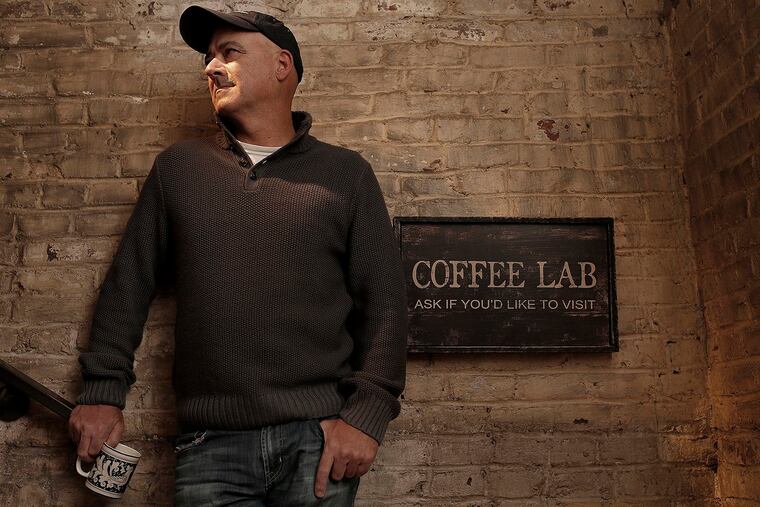La Colombe’s CEO styled himself as Philly’s working-class hero. Now it’s time we championed the actual workers. | Mike Newall
It’s much better to be known as a city where workers are protected – and sticking up for themselves – than a place that played host to the false narrative of a coffee baron.

Todd Carmichael liked to position himself as Philly’s working-class hero. The CEO who got it. Who paid his workers a living wage and who was willing to publicly shame anyone who didn’t.
This week, my colleague Juliana Feliciano Reyes publicly shamed him.
Philly’s latte king was talking a great game. But his numbers were foam. Turns out he really pays his baristas about $9 an hour to start, moving up to $10 an hour after a year. The difference between that and the $15-an-hour wage he’s championed for other businesses was made up in tips.
When he was called out, Carmichael said he ensures that, with tips, everyone brings home at least $15 an hour. But as a barista told Reyes, that means that living wage is reliant on the kindness of customers, instead of the kindness of their self-championing progressive owner.
The service industry can be a joyous place to make a career — in fact, I think every American should spend a year behind a counter of some sort. A national draft for hospitality workers. I spent 10 years as a bartender, making peanuts per hour and sometimes hundreds on tips. It can be a good living — and one that teaches more about human nature than almost any other job on the planet — but also a precarious living. On nights when tips are slow, you’re out of luck.
Carmichael says that he wasn’t trying to be deceptive. His argument: It’s semantics. All of his full-time employees qualify for full benefits, including health care and 17 days’ vacation, and La Colombe’s payment system is designed to get people to tip, the company says.
That’s great. But language matters, especially when people are trying to make a living. And if you’re going to hold yourself up as the champion of the working man, you need to actually pay people what you’re implying you are. Hold yourself to the standard you’re holding everyone else to — instead of passing the buck to whatever rando waltzes in for a latte.
Carmichael’s progressive cloak lent the city some cred, too — cred that’s now tarnished. But the crowd-sourced spreadsheet of baristas’ wages that exposed him brings us real cred, led by real workers, who are advocating themselves for the rights they deserve. And the movement is spreading, with workers participating on both coasts now, from Philly to Portland.
This kind of radical wage transparency can help expose hypocritical bosses — and employers whose wage practices are criminally nefarious. And the latter, hopefully, is where District Attorney Larry Krasner’s new unit to prosecute crimes against workers will come in.
To be clear, Carmichael’s not a criminal, just a boss who should know — and do — better. Krasner’s unit is designed to go after slimier behavior — like fudging timesheets, or putting workers in danger on the job. Add that to a push for unionization at WHYY, one of the city’s most storied institutions, and this week in Philadelphia has felt like a week for workers’ rights.
That can only be a good thing. If we’re going to hold ourselves up as a world-class progressive city, we need to put our money where our mouths are, and protect the people who are most vulnerable.
To make sure that everyone in the city, from disc jockeys to latte jockeys, earns a living that’s fulfilling, that helps them chart a future, or build one. One that doesn’t rely on phony stories that inflate a CEO’s ego — and pockets.
It’s much better to be known as a city where workers are protected — and sticking up for themselves – than a place that played host to the false narrative of a coffee baron.